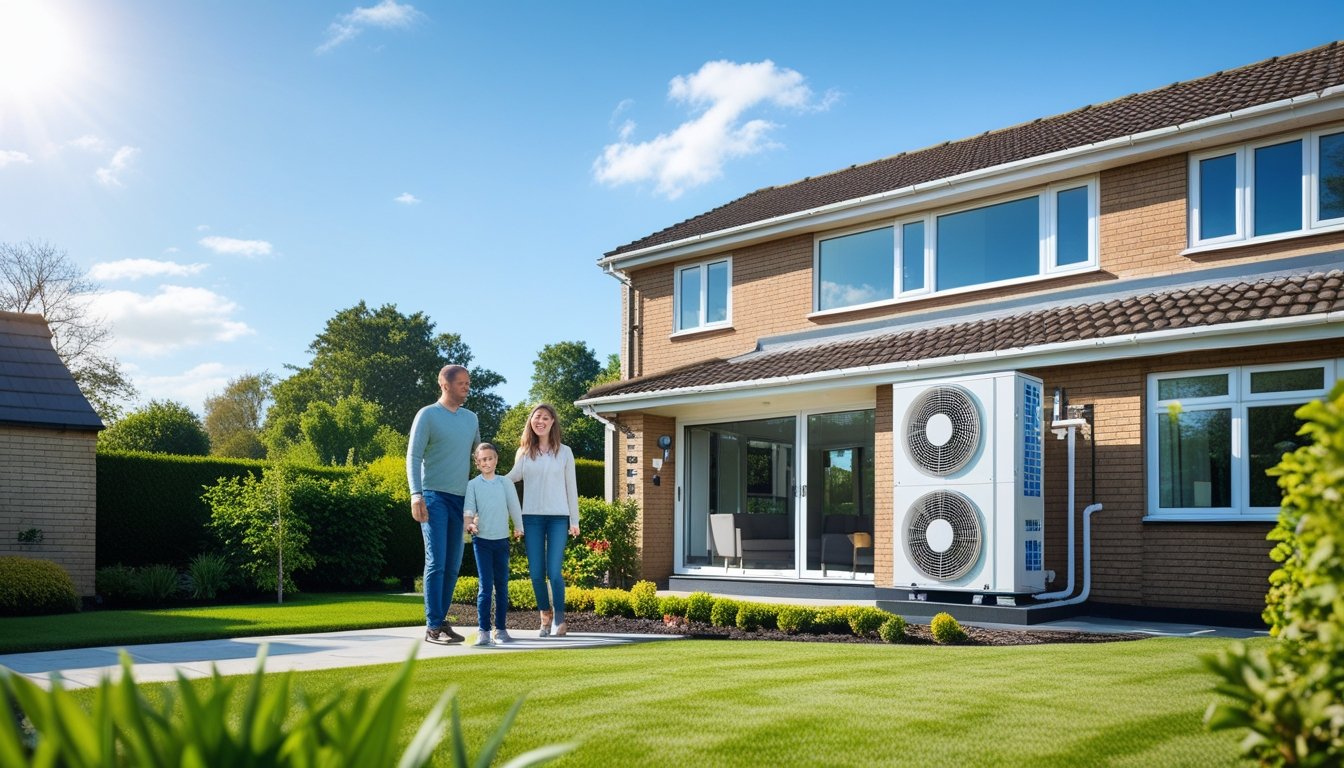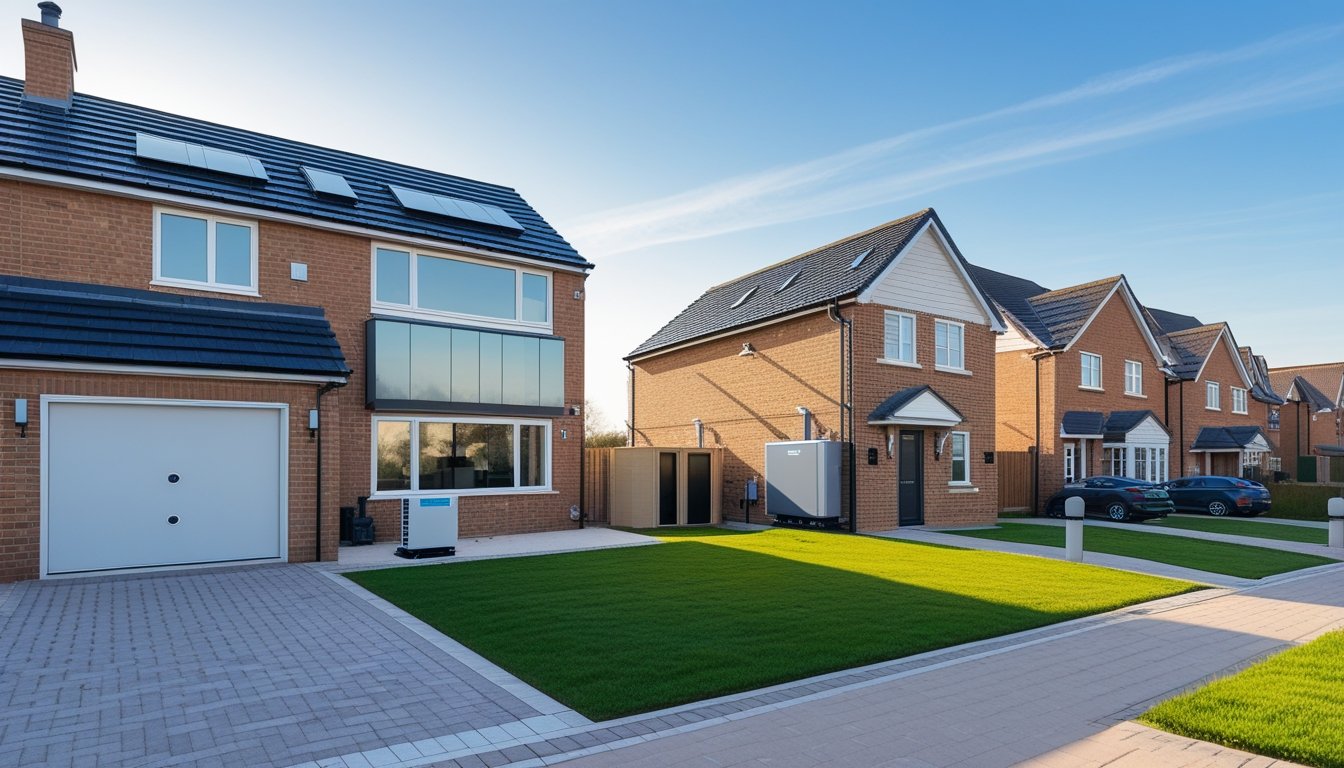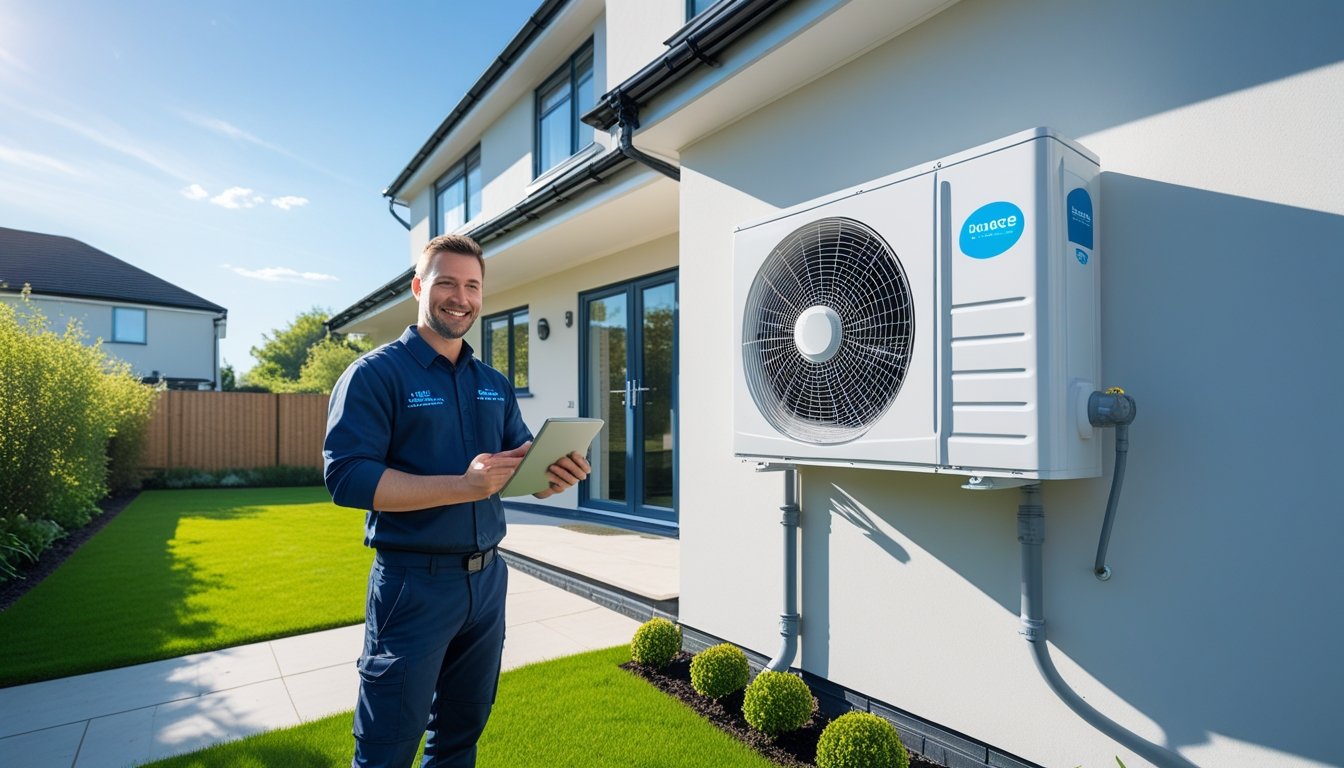Late updated: 03 Oct 2025 13:10
Written by: Eleanor Hartman
The Benefits Of Heat Pump Technology In UK Homes: An Energy-Efficient Solution
Despite the unpredictable British weather, advancements in heating technology offer a more sustainable solution for our homes. Heat pumps present a compelling alternative, offering energy efficiency and potential savings on energy bills. As we transition towards eco-friendly solutions, heat pumps stand out not only for their performance but also for their capability to reduce carbon emissions.

We are witnessing a shift from traditional heating methods to versatile heat pump systems that cater to various UK home configurations. The adaptability of heat pumps means they can replace systems such as oil, LPG, or electric boilers. Whether it's a new build or an older property, heat pumps can offer tailored solutions, promoting a greener future for our communities.
This technology also extends benefits beyond just heating. Homes using heat pumps often see an increase in property value due to their improved energy efficiency and reduced environmental impact. With the government's focus on sustainability, there are incentives available to home-owners looking to make this upgrade, further enhancing the appeal of this technology.
Key Takeaways
- Heat pumps offer energy efficiency and cost savings.
- Suitable for various UK home types, promoting eco-friendly solutions.
- Increased home value and government incentives further enhance their appeal.
Key Benefits Of Heat Pump Technology For UK Homes
Heat pump technology offers several advantages for UK homeowners, including improved energy efficiency, reduced carbon emissions, and significant cost savings on heating bills over time. These aspects make heat pumps an attractive solution for sustainable home heating.
Superior Energy Efficiency
Heat pumps are known for their exceptional energy efficiency compared to traditional heating methods. They work by transferring heat from outside sources, like the air or ground, into the home. This technology allows them to use less electricity to generate the same amount of heat as conventional systems. Additionally, they can provide both heating and cooling, making them versatile throughout the year.
In the sometimes unpredictable UK climate, this adaptability contributes to maintaining a comfortable indoor environment without excessive energy consumption. The heat pump's efficiency can be optimised through regular maintenance and ensuring proper installation, which can further enhance their performance.
Lower Carbon Footprint And Environmental Impact
By adopting heat pump technology, we can significantly lower our home's carbon footprint. Heat pumps rely on renewable sources to extract heat rather than burning fossil fuels, which reduces greenhouse gas emissions. The UK government supports this shift by providing incentives aimed at encouraging the adoption of green technologies like heat pumps.
Deploying heat pumps aligns with the UK's broader goal to transition to clean energy and lower nationwide energy consumption. With an appropriate incentive programme in place, more homeowners are encouraged to switch to this environmentally friendly heating option, helping us all contribute to a healthier planet.
Reduced Heating Bills Over Time
Heating bills form a large portion of a household's annual expenses, and heat pumps offer a solution to reduce these costs over time. While the initial installation cost might be higher than traditional systems, the long-term savings make it a financially sound investment. Heat pumps operate efficiently in various temperatures, ensuring consistent heating without rapidly escalating expenses.
Many homeowners see a noticeable reduction in their heating bills within the first few years. Coupled with potential government incentives and grants, the transition to heat pumps becomes even more appealing. This technology brings a practical, economical, and sustainable edge to our home heating systems.
Types Of Heat Pump Systems And Compatibility With UK Properties

Heat pumps are transforming the way we heat our homes in the UK. By understanding the different types available, we can make informed choices about which system best suits our property needs. Key types include air source, ground source, and hybrid heat pumps, each offering distinct benefits and installation requirements.
Air Source Heat Pumps In Different Home Types
Air source heat pumps are quite versatile, making them an excellent fit for a wide range of home types. They require access to the outdoor air and are straightforward to install. Homes without significant outdoor space, such as flats and terraced houses, can benefit as these pumps are relatively compact.
The installation involves outdoor and indoor units, with minimal alterations required. With their ability to integrate with existing central heating systems, they suit both new builds and older homes. These systems operate efficiently at lower temperatures, making them ideal for moderate climates like the UK. A lower upfront cost compared to other types further enhances their appeal for the average homeowner.
Ground Source Heat Pumps: Space And Performance
Ground source heat pumps involve installing pipes underground, which makes them suitable for properties with adequate outdoor space such as detached houses with large gardens. The initial installation can be extensive and requires professional involvement, but these systems often offer higher efficiency.
Pipes can be laid vertically or horizontally, with the choice influenced by the available land. While the upfront cost is higher, long-term savings can be significant due to the system's high efficiency. Properties that can accommodate these systems benefit from a stable energy transfer from the ground, ensuring consistent heating even in colder seasons.
Hybrid And Air-To-Air Heat Pumps: Flexible Solutions
Hybrid heat pumps combine a traditional gas boiler with a heat pump, offering flexibility and efficiency. These systems provide the best of both worlds, switching between the two energy sources based on demands and efficiency. They are ideal for properties transitioning from conventional heating systems to more energy-efficient solutions.
Air-to-air heat pumps, on the other hand, are best suited for well-insulated homes. They require less invasive installation and circulate heated air inside the property directly. Although not typically used for water heating, they are an efficient way to heat interior spaces promptly.
Integration With Underfloor Heating And Radiators
Heat pumps are compatible with underfloor heating systems and traditional radiators, allowing for efficient heat distribution. Underfloor heating is particularly effective, operating at lower temperatures and enhancing overall system efficiency. This compatibility makes heat pumps a popular choice for new builds and renovations.
Radiators can also be used effectively with heat pumps, especially when optimised for lower temperature operation. Upgrading existing radiators to more efficient models can improve performance. Whether part of a new installation or an upgrade to an existing system, the integration capacity of heat pumps adds to their growing popularity across the UK.
Frequently Asked Questions

In this section, we'll address common concerns about heat pumps for UK homes. These focus on advantages, efficiency, environmental impact, costs, performance in the British climate, and available financial support.
What are the primary advantages of using heat pumps in the domestic setting?
Heat pumps offer a clean alternative to fossil fuel-based systems, providing heating and cooling efficiently. They utilise electricity to extract heat from the air or ground, making them versatile for various home settings. Their ability to operate in both mild and cold climates is a significant advantage for UK households.
How do heat pumps contribute to energy efficiency in residential properties?
Heat pumps are known for their high efficiency, as they move heat rather than generate it. This method requires less energy compared to traditional heating systems, reducing overall energy consumption. By using less energy, they help lower utility bills, making them a cost-effective choice for long-term use.
In what ways do heat pumps support the UK's carbon reduction goals?
By using renewable energy sources, heat pumps significantly reduce carbon emissions. They align with the UK's goals to minimise reliance on fossil fuels, aiding the transition to greener energy solutions. Their adoption contributes to national targets for reducing greenhouse gas emissions.
What are the cost implications of installing a heat pump in a UK home?
Initial installation costs for heat pumps can be higher than conventional systems. However, energy savings over time often offset these costs. The exact expense can vary based on the type of heat pump and home requirements, but government incentives can help ease the financial burden for many homeowners.
How does the performance of heat pumps compare to traditional heating systems in the UK climate?
Heat pumps perform well in the UK climate, even in cold weather. Though they may be less effective in extremely low temperatures, modern systems are designed to provide reliable heating. Compared to gas boilers, they offer improved efficiency, ensuring consistent comfort throughout the year.
What funding or incentives are available for homeowners considering heat pump installation?
The Boiler Upgrade Scheme is a prominent initiative, offering up to £7,500 for eligible homeowners installing air source or ground source heat pumps. This support is aimed at reducing upfront costs and encouraging the shift towards sustainable heating solutions. Additional local grants may also be available, depending on the region.